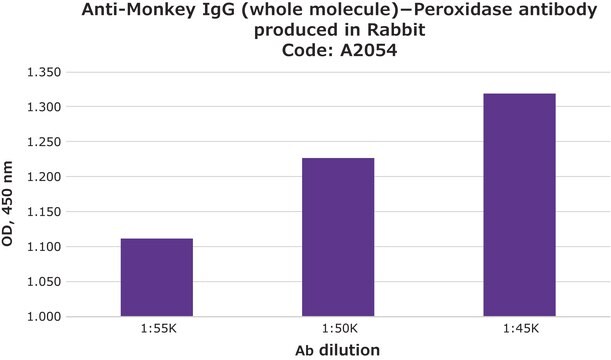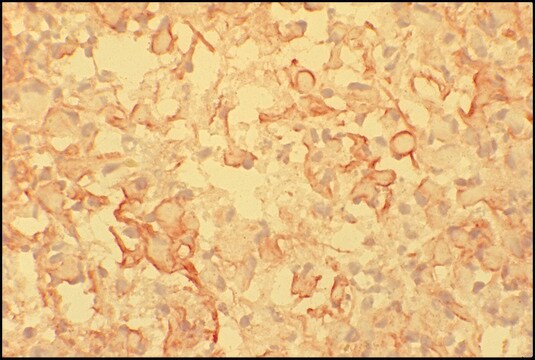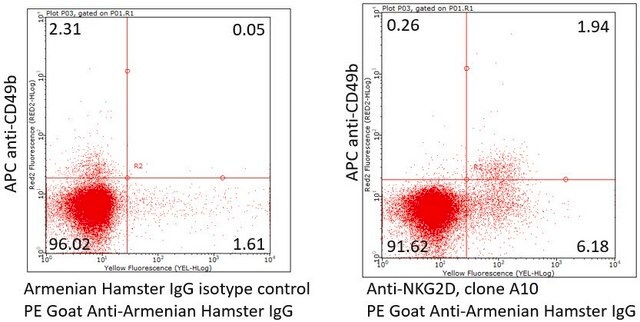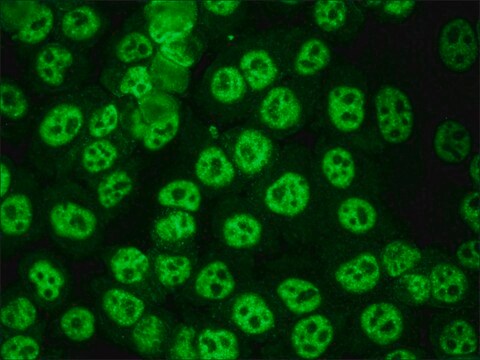SAB3700768
Anti-Monkey IgG (γ-chain specific)-Biotin antibody produced in goat
affinity isolated antibody, lyophilized powder
About This Item
Productos recomendados
biological source
goat
conjugate
biotin conjugate
antibody form
affinity isolated antibody
antibody product type
secondary antibodies
clone
polyclonal
form
lyophilized powder
species reactivity
monkey
technique(s)
immunohistochemistry: suitable
indirect ELISA: suitable
western blot: suitable
shipped in
wet ice
storage temp.
2-8°C
target post-translational modification
unmodified
General description
Specificity
Immunogen
Biochem/physiol Actions
Physical properties
Physical form
Reconstitution
Disclaimer
¿No encuentra el producto adecuado?
Pruebe nuestro Herramienta de selección de productos.
signalword
Danger
hcodes
Hazard Classifications
Acute Tox. 3 Dermal - Acute Tox. 4 Oral - Aquatic Chronic 2
supp_hazards
Storage Class
6.1C - Combustible acute toxic Cat.3 / toxic compounds or compounds which causing chronic effects
wgk_germany
WGK 3
flash_point_f
Not applicable
flash_point_c
Not applicable
Certificados de análisis (COA)
Busque Certificados de análisis (COA) introduciendo el número de lote del producto. Los números de lote se encuentran en la etiqueta del producto después de las palabras «Lot» o «Batch»
¿Ya tiene este producto?
Encuentre la documentación para los productos que ha comprado recientemente en la Biblioteca de documentos.
Nuestro equipo de científicos tiene experiencia en todas las áreas de investigación: Ciencias de la vida, Ciencia de los materiales, Síntesis química, Cromatografía, Analítica y muchas otras.
Póngase en contacto con el Servicio técnico










